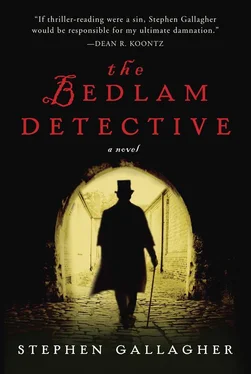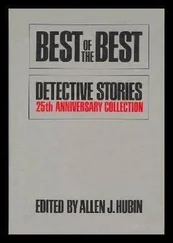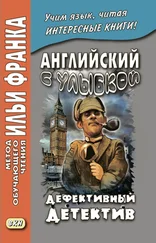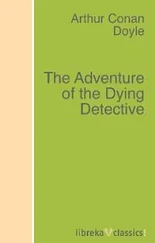Stephen Gallagher - The Bedlam Detective
Здесь есть возможность читать онлайн «Stephen Gallagher - The Bedlam Detective» весь текст электронной книги совершенно бесплатно (целиком полную версию без сокращений). В некоторых случаях можно слушать аудио, скачать через торрент в формате fb2 и присутствует краткое содержание. Жанр: Исторический детектив, на английском языке. Описание произведения, (предисловие) а так же отзывы посетителей доступны на портале библиотеки ЛибКат.
- Название:The Bedlam Detective
- Автор:
- Жанр:
- Год:неизвестен
- ISBN:нет данных
- Рейтинг книги:5 / 5. Голосов: 1
-
Избранное:Добавить в избранное
- Отзывы:
-
Ваша оценка:
- 100
- 1
- 2
- 3
- 4
- 5
The Bedlam Detective: краткое содержание, описание и аннотация
Предлагаем к чтению аннотацию, описание, краткое содержание или предисловие (зависит от того, что написал сам автор книги «The Bedlam Detective»). Если вы не нашли необходимую информацию о книге — напишите в комментариях, мы постараемся отыскать её.
The Bedlam Detective — читать онлайн бесплатно полную книгу (весь текст) целиком
Ниже представлен текст книги, разбитый по страницам. Система сохранения места последней прочитанной страницы, позволяет с удобством читать онлайн бесплатно книгу «The Bedlam Detective», без необходимости каждый раз заново искать на чём Вы остановились. Поставьте закладку, и сможете в любой момент перейти на страницу, на которой закончили чтение.
Интервал:
Закладка:
He waited for a reaction. The second man stepped in close and touched his companion’s shoulder; the older man was aware of it, and the shift in his posture acknowledged it, but he did not take his eyes from Stephen Reed’s. He would stay there until he had a response.
The detective said, “Thank you, Sir Owain. I’ll make a note of that.”
The other man had a proper hold on Sir Owain, and Sir Owain, satisfied that he’d been heard, allowed himself to be drawn away. Not so much by a friend or a companion as by a keeper.
Speaking out for the first time, Sebastian called after him, saying, “Sir Owain Lancaster. Yes?”
Sir Owain turned back on hearing his name.
Sebastian went on, “My name is Sebastian Becker. You should be expecting a visit from me.”
The second man, whom Sebastian assumed to be Dr. Hubert Sibley, Lancaster’s personal physician, said, “Surely not tonight?”
“We’ll make it tomorrow morning,” Sebastian said. “I’m staying at the Sun Inn. Can you send your car to pick me up at ten?”
Sibley didn’t try to argue. “I’m sure that will be acceptable,” he said. “We’ll be ready for you then.”
As for Sir Owain, it was as if he’d said his piece. Now he was happy to do whatever he was told.
Dr. Sibley finally succeeded in drawing his patient away and ushered him out to their waiting car. Stephen Reed let out a breath and then closed his eyes, taking a moment to settle his mind. Outside, Sebastian could hear the Daimler being started on its crank.
Here in the corridor, there was a moment’s silence. The Special waited for the reprimand that he probably didn’t think he deserved.
Then, choosing his words with care, Stephen Reed said, “You know more of this than you’ve been saying, Mister Becker, and you’ve known it all along.”
“The camera?” Sebastian prompted.
Stephen Reed hesitated, wary of saying anything more that the Special might overhear and repeat.
“This way,” he said to Sebastian, and led the way to a storage room adjoining the scullery.
The room was small and had been cleared of its usual contents in order to fit in two more of the folding tables. All the pieces of evidence from the woodland scene had been laid out separately, like parts of a puzzle or a toy requiring assembly. Shoes, the contents of the wicker basket, the bloodstained cloth bags fished from the gorse.
Stephen Reed surveyed the arrangement.
“Any sign of interference?” Sebastian said.
“I don’t believe so.”
In the middle of one table stood the varnished wooden box that Sebastian had taken from the boy soldier, and which had been taken from him in turn.
“Is that the camera you meant?” Stephen Reed said. “I took it for some kind of an instrument case. It’s not like any camera that I’ve seen.”
“Nor me,” Sebastian said. “But there’s a maker’s plate and a patent number, and that surely is some kind of a lens on the side. We shouldn’t try to do anything with it. This calls for professional advice. Did I see a photographer’s studio on the main street?”
“The local photographer went out with the search,” Stephen Reed said, turning the box around and squinting to read the maker’s plate in the poor light. “I’ll have him look at this first thing in the morning.”
Carefully, he set the box back in its place. Sebastian was looking at the two bloodstained bags. The blood had dried and the print was difficult to read, but they appeared to be flour bags.
“Those were lying close to the bodies,” Stephen Reed said.
“Not covering the faces?”
“I think they probably were. They may have been pulled from the heads of the children as they were dragged out into the open. But I can’t get the soldiers to say.”
“Why did the soldiers move them at all?”
“Because they thought it was required of them. Like corpses from the field of battle. They’d have put the bodies on a cart and brought them back into town if they’d had one.”
“This is not a consequence of child-stripping,” Sebastian said. “You surely can’t think so.”
“I’m sorry we got off on the wrong foot, you and I. But I suggest that now it’s time to share your knowledge.”
“That is awkward,” Sebastian said, “given that it involves both Sir Owain and your own superiors to some degree.”
“In what way, exactly?”
“Come to the inn when your business here is done,” Sebastian said, “and I can show you what I mean.”
EIGHT
As Sebastian Becker was leaving the assembly rooms in Arnmouth, back in South London his wife was locking away the ledgers that she’d been studying for the past two hours. The heavy books with their pages of close writing went into a cupboard in the receiving office of the Evelina Hospital on Southwark Bridge Road.
Elisabeth Becker had been working late, getting the August report for the Committee of Management into order. Elisabeth was the clerk to the hospital’s receiving officer, whose role it was to assess each patient’s family for their ability to pay. Treatment was free to children whose parents were without means. The Evelina was a charity hospital, and most of its patients were the children of the poor.
The office was on the ground floor, close to the house surgeon’s rooms. This was an odd-shaped building, designed to fit a donated site in a crowded and busy part of Southwark. It was tall, with long curving sides and a flattened front end. Seen from the appropriate angle, its lines could remind a visitor of the rear view of an old-fashioned galleon towering overhead.
On her way out Elisabeth bade a good evening to Mr. Briggs, who supervised the porters and kept order in the public areas. A onetime military man with no family, he lived in sparse quarters behind the postmortem room but was rarely to be found there. By day he stood in the hallway and directed visitors to their various destinations. By night he patrolled the stairwells and corridors. He had a straight back and a stern eye, but a bout of pneumonia last winter had left him perceptibly frail. Now he patrolled with the aid of a stick, and had been discouraged from passing through the wards after his shadowy figure and the steady thump of his staff had raised nightmares in some of the children.
“Good night, Mister Briggs,” she said.
“A good night to you, Mrs. Becker,” he said, with a slight bow of his head.
It was a pity about the nightmares. They were understandable, but undeserved. Mr. Briggs always had a kind word for the children. It was their guardians who sometimes needed a reminder of authority. Most were respectful of being in a hospital, but some showed behavior that was affected by guilt, grief, drink, or any other of those factors that can render the human personality unpredictable under pressure.
At the door, she passed two of the nurses coming in. They wore blue uniforms with white caps and aprons. They’d probably been over to Guy’s; Guy’s Hospital was only a few streets away, and staff often had cause to pass between the two.
She stepped onto the street. Her head buzzed with figures, and her eyes ached from the strain of close work. It was already dark outside. But at least she was in the open now, if this busy and noisy road could be called such. Despite the racket of a passing tram, she felt a little of the tension lift.
Her eyes hadn’t always ached so. Elisabeth’s last birthday had been her fortieth. She’d approached her forty-first year without any special apprehension, but now she didn’t know what to make of it. Every Englishwoman of forty or over seemed to regard herself as old, and to behave accordingly; but Elisabeth was a Philadelphian American, and didn’t care to consider herself among them.
Читать дальшеИнтервал:
Закладка:
Похожие книги на «The Bedlam Detective»
Представляем Вашему вниманию похожие книги на «The Bedlam Detective» списком для выбора. Мы отобрали схожую по названию и смыслу литературу в надежде предоставить читателям больше вариантов отыскать новые, интересные, ещё непрочитанные произведения.
Обсуждение, отзывы о книге «The Bedlam Detective» и просто собственные мнения читателей. Оставьте ваши комментарии, напишите, что Вы думаете о произведении, его смысле или главных героях. Укажите что конкретно понравилось, а что нет, и почему Вы так считаете.












